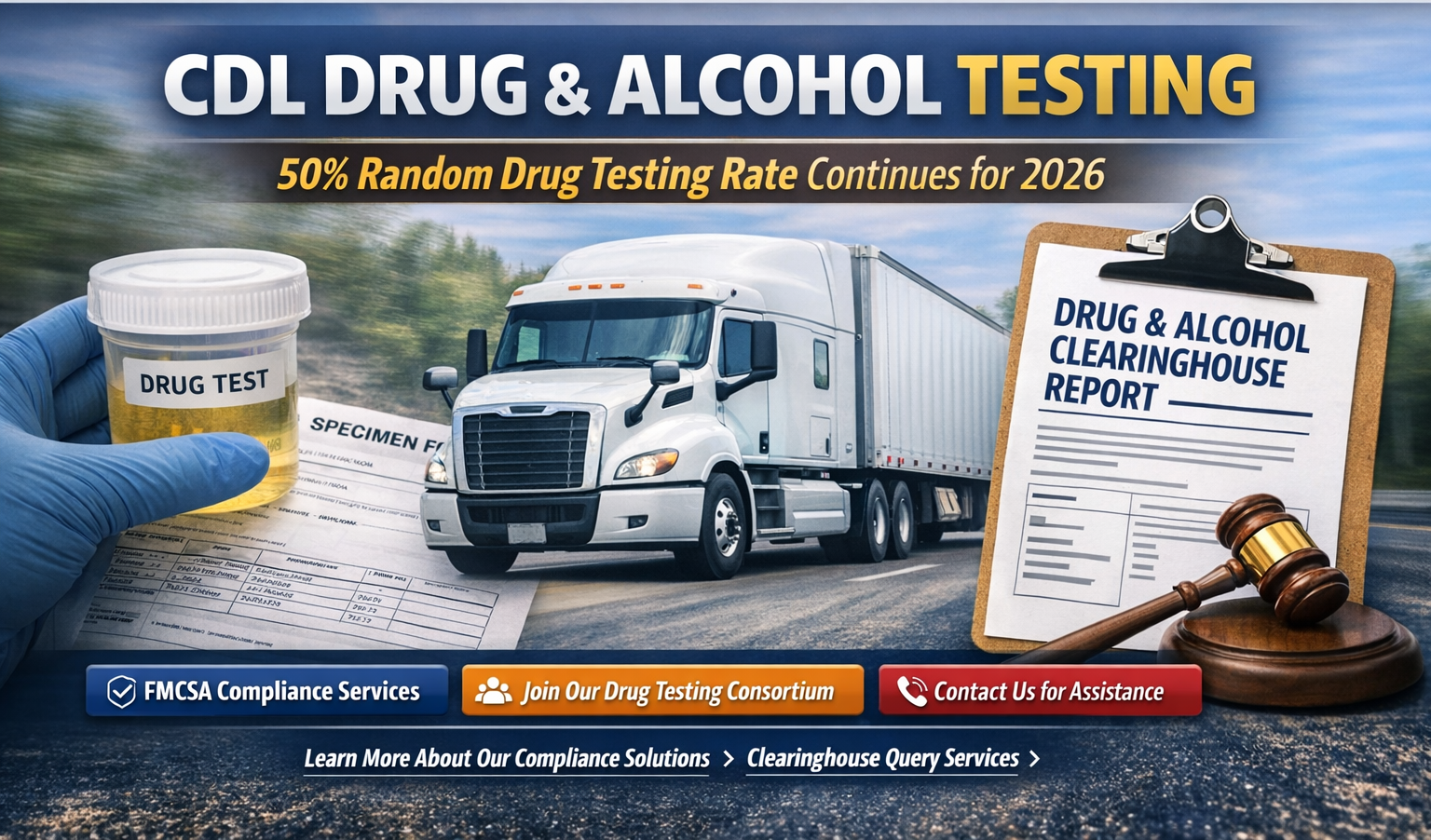trucking permit services
Standard, Hazmat, & Specialty Permits
Trucking permit services handle the necessary paperwork and compliance requirements for fuel taxes and weight distance taxes, ensuring that trucking companies meet state and federal regulations. Here’s an overview of these services:
Fuel Tax (International Fuel Tax Agreement - IFTA)
What It Covers:
IFTA is an agreement among the lower 48 U.S. states and 10 Canadian provinces to simplify the reporting of fuel taxes for motor carriers that operate in multiple jurisdictions.
Who Needs It:
If a carrier operates a qualified motor vehicle (having three or more axles or weighing over 26,000 lbs) across state/province lines, they must register for an IFTA license.
How It Works:
Carriers file quarterly fuel tax reports detailing miles traveled and fuel purchased in each state. Based on this, taxes are either owed or refunded.
Permit Services Help With:
- Obtaining an IFTA license and decals
- Preparing and filing quarterly reports
- Managing record-keeping and audits
Weight Distance Tax (WDT)
What It Covers:
Some states charge a weight-distance tax instead of (or in addition to) fuel tax, requiring carriers to pay based on vehicle weight and miles traveled within that state.
Who Needs It:
Carriers operating in states with WDT laws must register and file reports. States with weight-distance taxes include:
- New Mexico – For vehicles over 26,000 lbs
- Kentucky (KYU tax) – For vehicles over 59,999 lbs
- New York (HUT - Highway Use Tax) – For vehicles over 18,000 lbs
- Oregon – No IFTA participation, but requires weight-distance tax reporting
Permit Services Help With:
- Obtaining WDT permits (e.g., NM WDT, KYU, NY HUT, Oregon WDT)
- Filing weight-distance tax returns
- Managing mileage tracking and compliance
Temporary Fuel and Weight-Distance Permits
If a trucking company does not have IFTA registration or WDT credentials, they may need temporary permits to operate legally in a given state. These are issued for short periods and allow for compliant operations without full registration.
our general procedure for MSOs
01.
Send information request to our client detailing the need for information to complete the titling process.
02.
Research all VINs to confirm ownership/stolen/determination of title by the DMV.
03.
Contact original manufacturer of equipment to obtain duplicate copies of lost MSOs (if required).
04.
Receive duplicate MSO, issued by manufacturer.
If MSO is not obtainable, we cannot obtain a new title, and will proceed with the following steps (5-9):
05.
Send information request to our client detailing the need for additional information to complete the titling process.
06.
Research all vehicle VINs to confirm ownership/stolen/old lienholders.
07.
Complete the Application for a Certified Copy of Title (providing that the client does not have the original title).
08.
Submit the Application for a Certified Copy of the Title and supporting documentation to the DMV.
09.
Receive certified copies of titles provided by the DMV.
New Lienholder Required:
- Send information request to our client detailing the need for information to complete the titling process.
- Complete the Application of “State” Certificate of Title.
- Submit the Application of “State” Certificate of Title and supporting documents to the DMV.
- Receive titles (including lienholders), sent by the DMV.
- Confirm all titles are complete and correct.
- Send final titles to the lienholder or client.
Any questions? We Have Answers
I want to open a new trucking company, what do I need?
- Register your business and trademark the name
- File for an EIN with IRS
- Obtain a USDOT number & Authority
- Obtain a BOC-3 Agent & Insurance
- Obtain an IRP and IFTA account
How much does it cost to get your own trucking authority?
The FMCSA charges $699 to file the paperwork and get your authority issued.
What is a BOC-3 processing agent?
It’s an FMCSA agent or business that receives legal documents on behalf of a company. This includes court papers, complaints, and summons. Our related company 1+49 Process Agents LLC provides agents in all 50 states.
What is UCR?
It’s an annual fee that all individuals or companies that operate commercial motor vehicles across state or international lines must pay based on the number of vehicles.
What is biennial?
It’s an update with the FMCSA that requires entities to update their information every two years.
What is IFTA?
It's a fuel tax collection and sharing agreement for the redistribution of fuel taxes paid by interstate commercial carriers.
What is HVUT?
The heavy vehicle use tax or HVUT is a fee assessed annually on heavy vehicles operating on public highways at registered gross weights equal to or exceeding 55,000 pounds.
I bought a truck; how can I get it registered and get my plates?
You will need to title the vehicle first with your local county and then add it to your IRP account.
I am running under somebody else’s authority; can I open an IRP account?
Yes, as long as you have an Employment Agreement.
How does your drug & alcohol consortium work?
We send drivers for a pre-employment test and once negative results are received, we will add the driver into our drug pool. Testing is conducted at a designated site across the US.
I’m the owner, but I don’t drive why do I have to be enrolled in a consortium?
As an owner-operator of a commercial vehicle, even if you don't personally drive, you are still required to be enrolled in a consortium because DOT regulations prohibit single owner-operators from managing their own random drug and alcohol testing program.
I am enrolled in your consortium, but I have not been tested randomly, why?
If you are enrolled in a drug testing consortium but haven't been randomly tested, it's likely because random selection is based on a large pool of drivers from different companies, meaning the odds of being chosen for a test at any given time are relatively low, especially if your company has a small number of drivers; essentially, your chances of being selected are diluted by the larger pool within the consortium.
What is the Return to Duty process?
It's a series of steps that an employee must complete to return to a safety-sensitive job after a drug or alcohol violation. The process includes evaluation, education, treatment, and testing.
What is the FMCSA Portal? What do I need to open one?
It’s an online platform that allows users, including carriers, brokers, and state officials, to access various safety data and information systems related to commercial vehicles with a single set of login credentials. What do I need to open one? You will need to request your USDOT Pin and create a Login.gov account.
What is the Clearinghouse? What do I need to open one?
It's a central repository to track CDL driver drug and alcohol test results and return-to-duty information. What do I need to open one ? You need a valid email address and to create a login.gov account. You can use your existing login.gov account if you already have one.
What is a Query?
Detailed information about any violations found in a driver's Clearinghouse record.
I drove zero miles this quarter, do I need to file an IFTA return?
Yes, you must file a separate return each calendar quarter for each fuel type indicated on your initial or renewal application even when no miles were accrued that quarter.
fleet insights


Why We Do What We Do
At National Fleet Services, we believe in more than just business - we believe in building the future of the trucking industry. Through our dedication to its growth and sustainability, we help motor carriers succedd today while paving the way for the opportunties of tomorrow.
"Performed extremely well. Responded to email requests quickly. Very knowledgeable and answered questions thoroughly over the phone. Very satisfied with their work."
ADAM GUTHRIE
Let's set the wheels in motion
We look forward to hearing from you!
Trucking Permit Services Contact Form
We will get back to you as soon as possible.
Please try again later.




